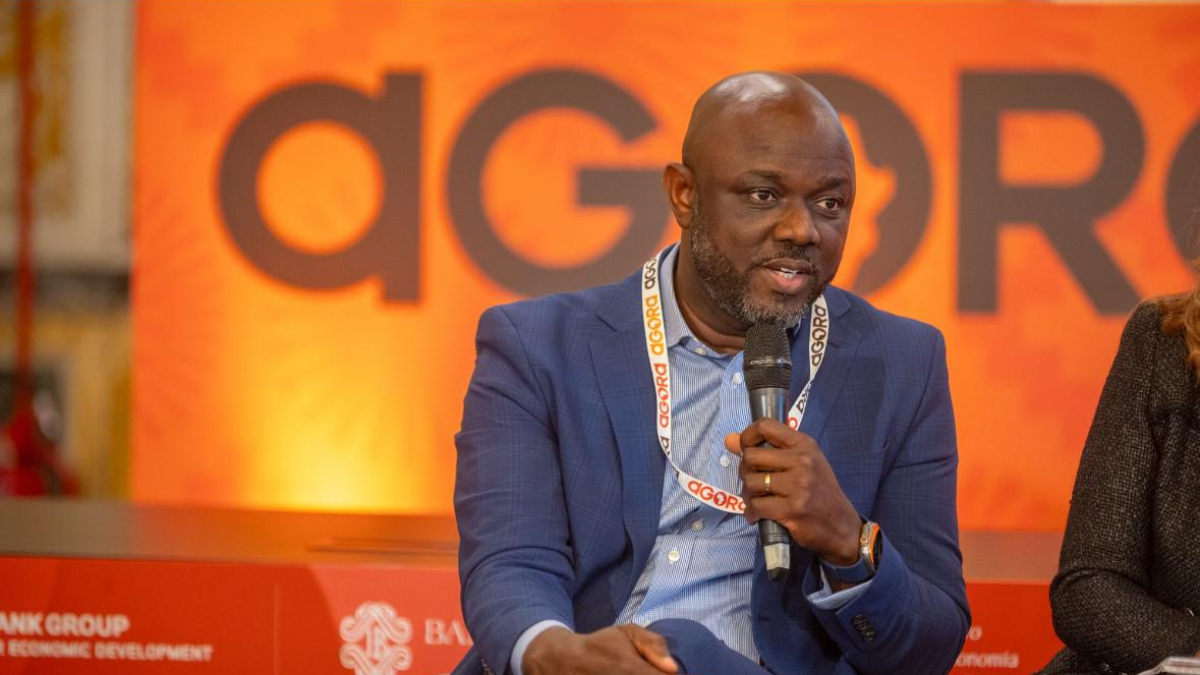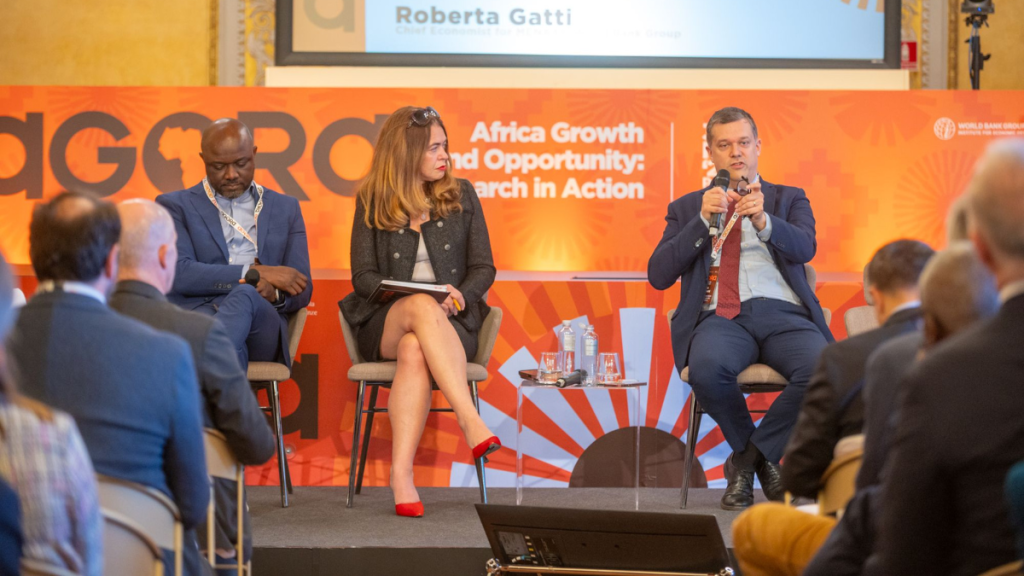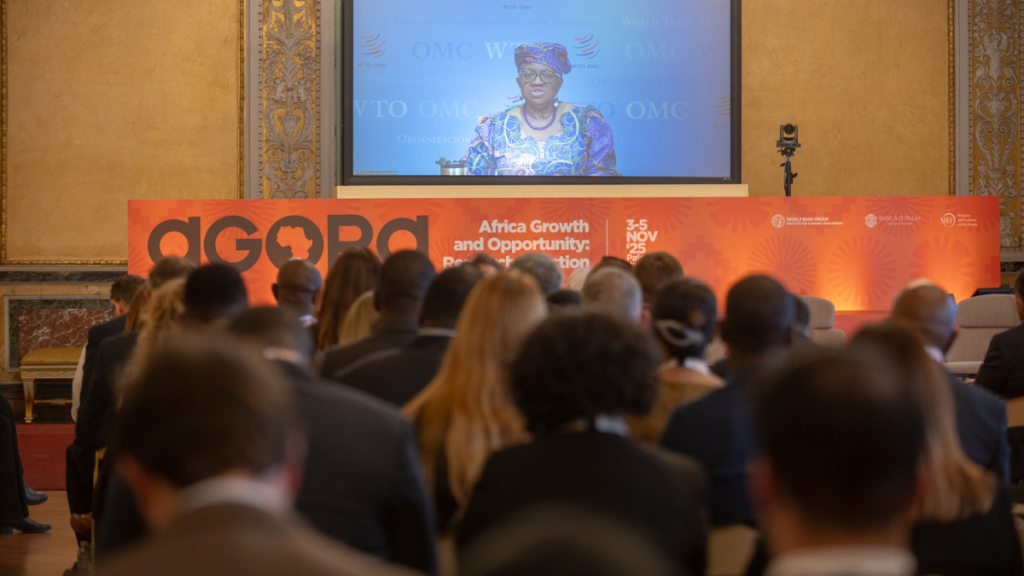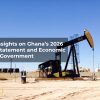

By: Benjamin Boakye
From November 3-5, 2025, I participated in the inaugural edition of the AGORA Conference, the flagship platform of the World Bank Group’s Institute for Economic Development, co-organized with the Bank of Italy and the Italian Ministry of Economy and Finance, in partnership with leading African think tanks.
I had the opportunity to sit on the Energy Mission panel, which focused on how mission-driven approaches can accelerate Africa’s energy transformation. My initial remarks digressed slightly from the specific questions, as I was drawn to reflect on earlier discussions that resonated with ACEP’s position on Africa’s energy and climate narratives, particularly the need for the continent to re-examine its stance on oil and gas development in the context of the transformation it seeks.
I drew a contrast between two presentations. One focused on the cooperation between Italy and Tunisia to transmit gigawatts of solar energy, at around 3 cents per kWh, beneath the Mediterranean Sea to blend with Italy’s far more expensive conventional power, costing around 30 cents per kWh. The other presentation underscored the continued claim by some African leaders that oil and gas remain the future drivers of development.

At that point, one did not need to be an economist to recognise that the fossil-centric narrative must be properly contextualised to prevent the continued haemorrhaging of national budgets tied to long-term fossil-based energy commitments. Ultimately, consumers are economic beings, and as grid electricity becomes more expensive while alternatives grow cheaper and more efficient, the grid will inevitably be ghosted. Renewable technologies have become increasingly competitive, and in Africa, there is no green premium on renewables. With storage solutions now addressing intermittency, the economics of renewables are stronger than ever, particularly for energy-poor contexts. When the climate argument is set aside, the economic case for renewables still stands firm. I felt compelled to make those points.
Eventually, I returned to the panel’s questions on energy access, Mission 300, and governance. I emphasised the urgent need to extend electricity to the over 600 million Africans still living without access. That effort must place equal emphasis on affordability, quality, and productivity. Grid expansion alone does not guarantee access if people cannot afford to connect or consume power. This requires careful modelling of generation and investment options that prioritise affordability at the centre of planning.
I commended the World Bank and the African Development Bank for their ambitious goal of halving energy poverty within the next five years. Yet I could not help but ask, is that ambition enough? At the pace of Mission 300, millions of Africans will continue to live, and sadly die, without access to electricity. The gap between targets and lived realities remains vast. Mission 300 must therefore be more than a numerical goal; it must serve as a catalyst to target every African living without electricity within the shortest possible time, driving bold and coordinated investments that place human dignity and opportunity at the centre of Africa’s energy transformation.
Mission 300 can serve as a foundation to catalyse greater investment and ambition, but only if it is underpinned by sound governance.
Governments must plan effectively and deliver on their commitments. Politicians must desist from gaming opportunities for selfish interests. The current model, in which poor decisions have driven the energy sector deep into debt, must come to an end. Many of these debts arise from politically motivated subsidies that benefit not the poor, but the politically connected. What we often describe as inefficiency is, in reality, the fuel for a growing class of politically aligned private interests that feed directly on the public purse without delivering value.
That must change. The notion of classifying energy as a social good has too often served as a smokescreen for diverting public resources to cronies rather than to citizens. Subsidy interventions must directly target genuine beneficiaries, rather than sustaining inefficient systems riddled with losses across generation, transmission, and distribution.
Africa’s energy future cannot be built on the politics of convenience. It must be anchored on sound economics, transparency, and a genuine commitment to human development.
The transition to clean, affordable, and reliable energy is not merely a climate agenda; it is an economic necessity and a moral responsibility. The choices made today will determine whether Africa remains trapped in cycles of dependency, or leads a new era of sustainable growth powered by innovation, accountability, and access for all.



